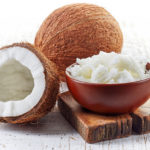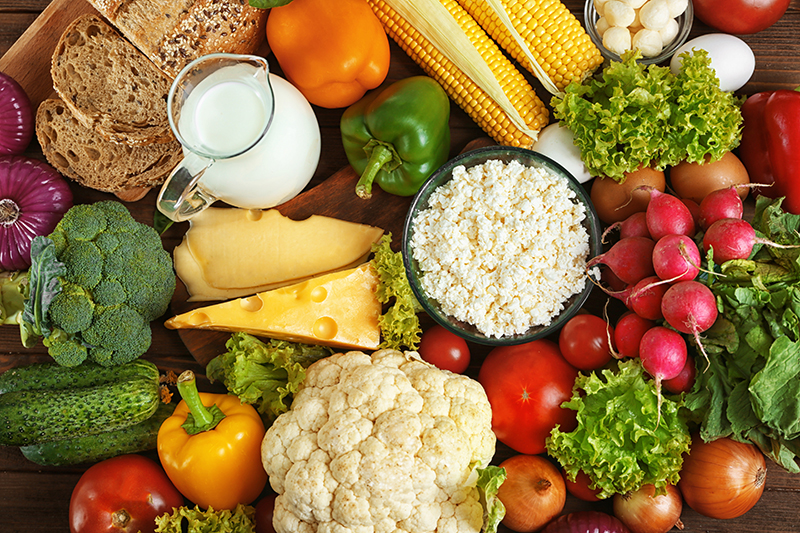Health Benefits of Eating Leeks
Whether broad-leaf or the wild, leek is closely related to onions and garlic and the great benefits of eating leeks is its pharmaceutical potentials. Leeks are one of the medicinal plants botanically known as Allium ampeloprasum.
Although, leeks are different from onions because they have no bulb. However, they belong to the same family and also have various properties in common.
Other names: Poor-man’s-asparagus
French: Poireau
Spanish: Puerto, ajo Puerto
German: Porree
Leeks stalks (‘Allium porrum’ L.) is an herbaceous plant of the botanical family Liliaceae. They are native to Mediterranean regions of the Near East and Southern Europe. They grow wild in these regions but today leeks are grown throughout Europe, Germany and France in particularly.

Leeks is highly rich in sulfur compounds which provide its common aroma and pungent taste and these sulfur compounds act on prompting good health. One of the benefits of eating leeks is that they contain important compounds such as lutein, beta-carotene and vitamin C.
SEE ALSO: Foods to Prevent Osteoporosis
Properties of Leeks
Onion and leek have similarities in composition, although leek contains more carbohydrates (12.4%) more minerals and more folic acid (64.1 ug /100 grams). In minerals, the nutrients most notable are calcium which is about 59 mg / 100 grams, then followed by magnesium (28 mg / 100 grams) and lastly iron (2.1 mg / 100 grams).
1/2 kilo of leeks makes available the 10 mg of iron that’s required by an adult on a daily and 1/3 of calcium. However, their vitamin content is somewhat negligible.
Another benefits is that leek contains an essential oil that is somewhat similar to those of onion but in lower concentration.
Leek Composition
The information is based on (per 100 grams of raw edible portion)
Energy = 61.0 kcal = 25 kj
Carbohydrates = 12.4 g
Protein = 1.50
Fiber = 1.80 g
Vitamin A = 10.0 μg RE
Vitamin B1 = 0.060 mg
Vitamin B2 = 0.030 mg
Niacin = 0.600 mg NE
Vitamin B6 = 0.233 mg
Folate = 64.1 μg
Vitamin B12 = _____
Vitamin C = 12.0 mg
Vitamin E = 0.920 mg ∝-TE
Calcium = 59.0 mg
Phosphorus = 35.0 mg
Iron = 2.10 mg
Potassium = 180 mg
Zinc = 0.120 mg
Saturated Fat = 0.040 g
Total Fat = 0.300 g
Cholesterol = ____
Sodium = 20.0 mg
The information is based on % daily value (based on a 2,000 calorie diet) provided by 100 grams of leek
The following are the percentage (%) composition of leek
Fiber = 1.80%
Minerals = 1.05%
Carbohydrates = 12.4%
Fat = 0.300%
Protein = 1.50%
Water = 83.0%
YOU MAY LIKE: Matricaria Chamomilla Uses
Indications regarding Leeks Benefits
Here are some of the indications:
- Bronchitis and sinusitis
- Constipation
- Uratic arthritis
Bronchitis and sinusitis
Leek’s mucolytic effect (i.e mucus fluidization) and the antiseptic properties as provided by their essence. They are recommended in cases of bronchitis and sinusitis.
Constipation
Leeks are capable of producing intestinal flatulence and this is due to their fiber laxative effect.
Uratic arthritis
When there is excess uric acid production, it goes to make deposits in joints thereby causing inflammation and also pain (arthritis). However among the benefits of eating leeks is in their alkalizing effect and also diuretic effect which bring about increase in urinary elimination of uric acid.
For those suffering from gout, arthritis and kidney disorders, they will definitely get the benefits of eating leeks.
Some Health Benefits
They are as follows:
- Antioxidants
- Antihypertensive effects
- Anti-ulcer
- Anti-Diabetic
- Fight against Cancer
Antioxidant

Here, benefits of eating leeks are quite enormous because leeks are endowed with antioxidants that help fight against free radicals and also foster prevention of oxidative street.
In scavenging free radicals, the leeks green portion have enormous capability as compared to the white portion. Phenolic compounds in leeks are responsible for the actions mentioned above. Again, vitamin C which is a natural antioxidant fights against diseases and infections thereby boosting the immune system.
Anti-hypertensive
One of the benefits of eating leeks regularly is that it causes increase in the production of nitric oxide. This compound helps widen the arteries and also ensures there’s smooth flow of blood throughout the body.
Another compound known as kaemptenol is contained in leeks and it helps protect the lining of the blood vessels from being damaged due to increase in nitric oxide product which facilitates blood vessels to become relaxed and dilate.
Anti-ulcer Effect
Another benefits of eating leeks is that there are compounds that protect the stomach lining (inner lining) and also carry out inhibition of gastric ulcers formation. Ulcer are treated with anti-inflammatory medicines.
Leeks are anti-ulcer medicine. Therefore, they are good at healing of gastric ulcer.
Anti-Diabetic
Studies find that one of the benefits of eating leeks especially by diabetics is that leeks have the potentials in lowering blood glucose level. They also improve the sensitivity of insulin.
Fight against Cancer
Various compounds found in leeks such as methyl fura, pentanol and octa decan help in lowering intestinal cancer risks. The compounds are able to inhibit the development of cancer cells and prevent their spread.
READ ALSO: Echinacea Benefits for Skin
Preparation and Use
- Steamed or boiled: It can be prepared with lemon and oil or mayonnaise. Of course, it is an exquisite dish.
- Raw: Leeks may be eaten raw in salads especially when they are tender and younger.
- Cooked: Leeks are good when combined with eggs and potatoes.
How to prepare Leeks Recipe
Ingredients for braised leeks
- Vegetable broth: get cups
- Leeks: 4 – 5
- 2 – 3 garlic cloves
- 2 tablespoons of coriander
- One-quarter (1/4) teaspoon of black pepper powder
- 2 teaspoons of olive oil
- Salt

Method of preparation
- From leeks, you take out the outer green leaves. Get the roots trimmed and slice them in 2 halves (in length). Ensure proper washing.
- Put some olive oil in a pan together with garlic, finely chopped. Add vegetable stock immediately the garlic looks brown, add pepper powder, coriander leaves and salt.
- Stir very well, before you cover it, add leeks and allow cooking for about 20 – 25 minutes.
- Stir again and put it in a serving dish.
- Add more pepper if desired.
According to conserve-energy-future, it strengthens the immune system.

A graduate of Computer Science and Information Management Technology. Diploma – Caregiving, Certificates – Dementia and Diabetes Awareness and Management. A researcher, blogger, songwriter, singer and acoustic guitarist. Born in an environment where natural talents such as healing are imparted at our natural birth. This natural talents of healing is the result of our genetic inheritance and the training from family environment.













